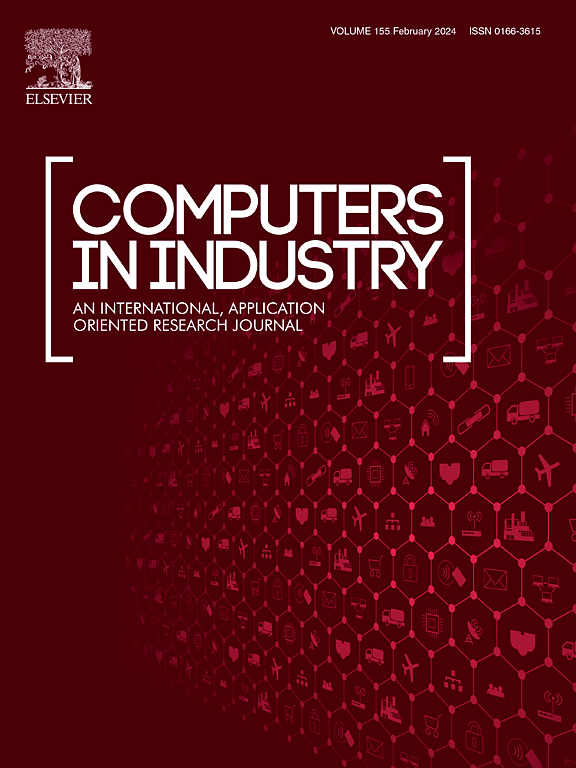A comprehensive survey of image synthesis approaches for Deep Learning-based surface defect detection in manufacturing
IF 9.1
1区 计算机科学
Q1 COMPUTER SCIENCE, INTERDISCIPLINARY APPLICATIONS
引用次数: 0
Abstract
Detection of manufacturing defects is a crucial step in ensuring product quality and safety. The automation of defect detection processes and the enhancement of detection accuracy are pivotal objectives in industrial quality control. However, the complexities of manufacturing processes present significant hurdles in the development of effective defect detection models. Deep Learning (DL) models have emerged as a potential solution for defect detection by learning patterns from extensive datasets without necessitating an in-depth understanding of the manufacturing processes. However, training such DL models requires vast amounts of data, which are often difficult and costly to collect from real manufacturing environments. As a response to these challenges, researchers have proposed synthetic image generation to facilitate DL model training. The existing literature primarily focuses on two main approaches for synthetic defect image generation: computer graphics-based methods and DL-based methods. However, there are a limited number of literature reviews focused on DL-based methods and no reviews on recent developments particularly diffusion models in defect image synthesis. Moreover, no comprehensive review currently addresses the application of computer graphics-based techniques for defect image generation. Therefore, this article presents a comprehensive review covering both computer graphics-based methods and recent developments in DL-based methods employed in the synthesis of artificial images. The review addresses various techniques, their strengths and limitations, and their implications for advancing defect detection in manufacturing.
基于深度学习的制造业表面缺陷检测图像合成方法综述
制造缺陷的检测是保证产品质量和安全的关键环节。缺陷检测过程的自动化和检测精度的提高是工业质量控制的关键目标。然而,制造过程的复杂性给开发有效的缺陷检测模型带来了巨大的障碍。深度学习(DL)模型已经成为一种潜在的缺陷检测解决方案,它可以从广泛的数据集中学习模式,而无需深入了解制造过程。然而,训练这样的深度学习模型需要大量的数据,而从真实的制造环境中收集这些数据通常是困难和昂贵的。为了应对这些挑战,研究人员提出了合成图像生成来促进深度学习模型的训练。现有文献主要集中于合成缺陷图像生成的两种主要方法:基于计算机图形学的方法和基于dl的方法。然而,关注基于dl的方法的文献综述数量有限,而对缺陷图像合成中扩散模型的最新进展则没有评论。此外,目前还没有针对基于计算机图形的缺陷图像生成技术的应用进行全面的综述。因此,本文全面回顾了基于计算机图形学的方法以及用于人工图像合成的基于dl的方法的最新发展。这篇综述论述了各种技术,它们的优点和局限性,以及它们对制造过程中缺陷检测的影响。
本文章由计算机程序翻译,如有差异,请以英文原文为准。
求助全文
约1分钟内获得全文
求助全文
来源期刊

Computers in Industry
工程技术-计算机:跨学科应用
CiteScore
18.90
自引率
8.00%
发文量
152
审稿时长
22 days
期刊介绍:
The objective of Computers in Industry is to present original, high-quality, application-oriented research papers that:
• Illuminate emerging trends and possibilities in the utilization of Information and Communication Technology in industry;
• Establish connections or integrations across various technology domains within the expansive realm of computer applications for industry;
• Foster connections or integrations across diverse application areas of ICT in industry.
 求助内容:
求助内容: 应助结果提醒方式:
应助结果提醒方式:


